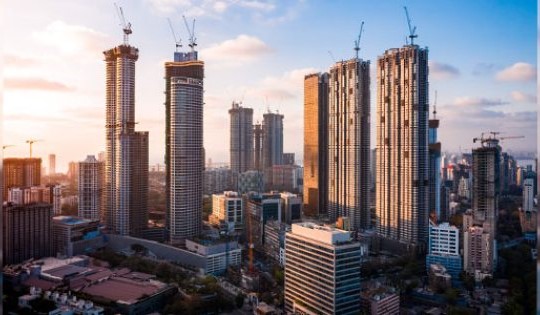[ad_1]
On Friday, the Maharashtra government introduced a draft of its 2024 Housing Policy. This initiative, launched just before the assembly elections, aims to tackle the state’s housing issues by focusing on affordable and sustainable housing solutions, particularly for economically weaker sections (EWS).
“The aim is to create vibrant and resilient communities by promoting affordable housing, sustainable urban development, and inclusive growth, where every individual can thrive,” says the policy draft.
The previous policy was updated in 2007 and primarily concentrated on urban development.
The core of the new housing policy is centered on creating affordable housing for economically disadvantaged groups, lower-income groups (LIG), and middle-income groups (MIG).
Additionally, a significant improvement in the updated policy is its focus on sustainability and green building practices.
The revised policy implements strategies aimed at minimizing the environmental impact of new housing developments. This encompasses the integration of energy-efficient designs, water-saving technologies, and robust waste management practices.
“Building resilient housing is an important step towards climate change mitigation and adaptation. Such housing is designed to minimize damage, reduce vulnerability, and reduce the impacts of adverse weather conditions. While the focus will be on sustainability and affordability, the government will also provide subsidies for the ones who choose to adopt the green building concept,” says the policy draft.
The policy presents focused housing initiatives aimed at various demographic groups, such as senior citizens, working women, students, and industrial workers. These programs are purposefully inclusive, addressing the unique housing needs of different communities. A key feature is the ‘walk-to-work concept’ for industrial workers, which requires the Maharashtra Industrial Development Corporation (MIDC) to designate 10-30% of its land specifically for housing for workers.
“We have implemented policies to reserve a significant percentage of housing units for EWS and lower-income groups in all our projects. We have also introduced subsidy schemes and easy financing options to make homeownership more accessible. Furthermore, we are collaborating with private developers to incentivize the construction of affordable housing units, ensuring that these homes are built well and delivered on time,” says an official.
A key focus of the policy is to encourage redevelopment through public-private partnerships. The Dharavi Redevelopment Project, spearheaded by Adani Realty, is expected to leverage the advantages presented in the policy. Furthermore, the policy proposes the creation of specific rental housing zones to meet the growing demand for affordable rental options, particularly near employment hubs and educational institutions.
[ad_2]

